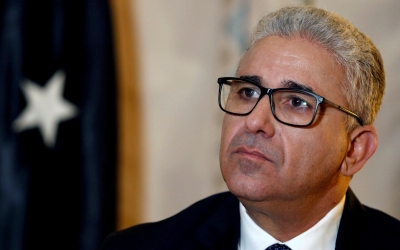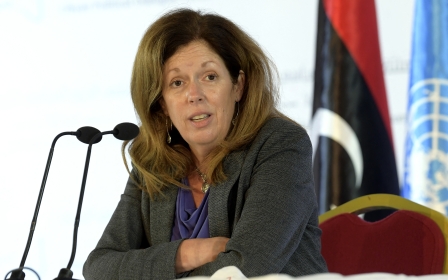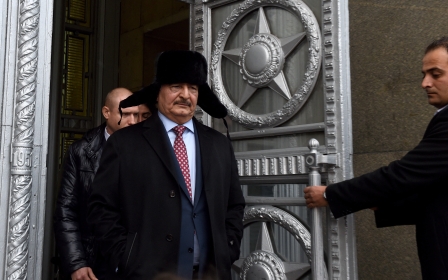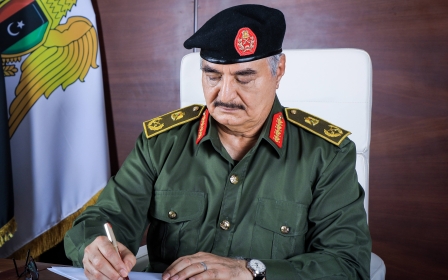Libya's Bashagha denies writing Times article condemning Russia
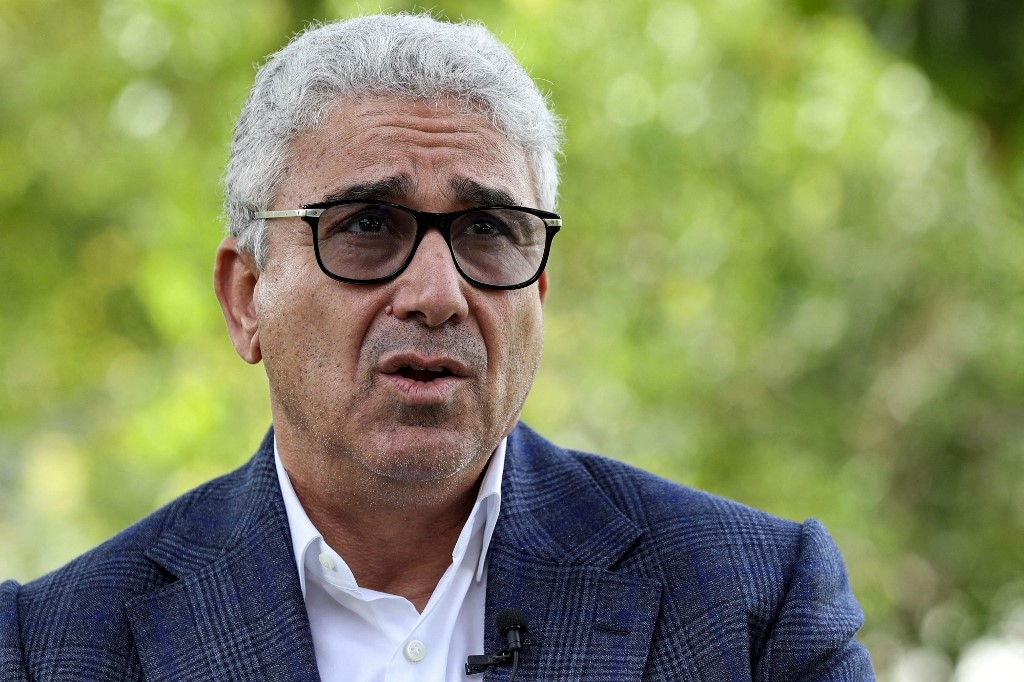
Fathi Bashagha, one of two rival Libyan prime ministers, has denied writing an article published on Tuesday under his name by the Times newspaper in London.
In the article, purportedly written by Bashagha, the Libyan politician declares that he wants his country to “stand with Britain against Russian aggression”.
“Today my country is facing one of its toughest battles yet; as Ukrainian troops battle Russia with British missiles, we in Libya are fighting the same fight,” the article says.
'I hope this grand and respected newspaper inspects accuracy to avoid being involved in publishing false articles'
- Fathi Bashagha
Bashagha, who describes himself as Libya's interim prime minister, has now seemingly decided he wasn’t the author of the article, tweeting in Arabic: “I was surprised by an article attributed to me in the English newspaper the Times. I hope this grand and respected newspaper inspects accuracy to avoid being involved in publishing false articles.”
Sources at the Times told Middle East Eye they thought Bashagha’s social media accounts had been hacked, though there were no signs they had been compromised.
New MEE newsletter: Jerusalem Dispatch
Sign up to get the latest insights and analysis on Israel-Palestine, alongside Turkey Unpacked and other MEE newsletters
A spokesperson for the Times told MEE: "We stand by our publishing of this article and Fathi Bashagha's staff have confirmed to us it is accurate."
Bashagha’s own media team did not respond to MEE’s questions about the article or about whether his Twitter account had been hacked.
Bashagha served as interior minister in the Government of National Accord, an administration that Russia-backed general Khalifa Haftar failed to topple in a 2019-2020 war. Haftar's forces included hundreds of Russian mercenaries from the Wagner Group, a private military contractor with close links to the Kremlin. Many Wagner fighters are believed to remain in Libya.
In the Times article, Bashagha - who since Haftar’s failed assault on Tripoli has grown closer to the general and his allies - appears to be unequivocal in his condemnation of Russian interference in Libya, though he has said nothing about it in Arabic on his current tour through Haftar-controlled parts of Libya.
“Since 2014, thousands of mercenaries from Wagner, a private military group close to Vladimir Putin, have been in my country, leaving a trail of destruction behind,” he writes in the Times.
“Putin’s involvement is something that I utterly condemn, but I must, and can, go further than that.”
'Strategic partnership with Britain'
The article goes on to “remind Britain that Libya, too, is a frontline in this fight with Russia”.
It advertises how Libya can form a “strategic partnership with Britain - one based on business, security and shared intelligence”.
This includes working to stop “the flows of illegal migrants crossing the Mediterranean”, as well as fighting Wagner Group mercenaries, tackling Moscow’s influence and using Libyan oil and gas to “ween the world off Russian oil”.
However, a day after publication Bashagha publicly declared that he is not its author and that it should not have been published in his name.
This is not the first time the former interior minister has used his Twitter account to indicate a change of mind.
In March, the Libyan parliament approved a government led by Bashagha to replace the interim adminstration of Abdul Hamid Dbeibah, who has vowed not to cede power. Following the vote, Bashagha gave a televised speech in which he did not mention the Russian war in Ukraine, which was dominating news cycles.
Bashagha went on to tweet his opposition to the war in Ukraine - in English.
The politician, who is from the western city of Misrata, has in the past worked with western lobbying groups and PR firms, including the Washington-based BGR Group, and has had several articles published under his name in English-language newspapers.
'Consequences'
Now, the question of whether he really is the author of those articles is up in the air, and where Bashagha stands with Haftar.
"There's two things that emerge here," Emadeddin Badi, a senior analyst at Global Initiative, told MEE.
"First of all, there's trouble in paradise in this alliance between Haftar and Bashagha and the Russians as a kind of middle man in Libya's future. I think that's going to be a problem for Bashagha and Haftar to reconcile on, among many other problems.
"The second is that Bashagha is clearly marketing different narratives depending on the audience he's talking to. The tweet was clearly meant for a local audience and I'd say actually it was meant for Haftar's people - to placate them."
A Libyan source who regularly consults with Haftar told MEE in February that Bashagha had cut a deal with Haftar and his family. The publication of an anti-Russian broadside in an English newspaper is unlikely to have gone down well with Haftar or in Moscow.
“One thing is certain in the wake of this incident: the Russians are still very much present in Libya, to the point of scaring high-profile politicians,” Jalel Harchaoui, a researcher specialising in Libya, told MEE.
“You can’t just say anything about them, even if you say you are the prime minister. They have not pulled out of Libya and you can’t insult them there without consequences.”
Middle East Eye delivers independent and unrivalled coverage and analysis of the Middle East, North Africa and beyond. To learn more about republishing this content and the associated fees, please fill out this form. More about MEE can be found here.


